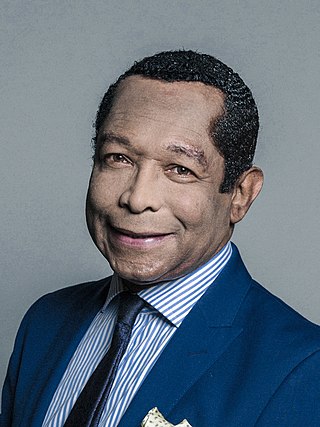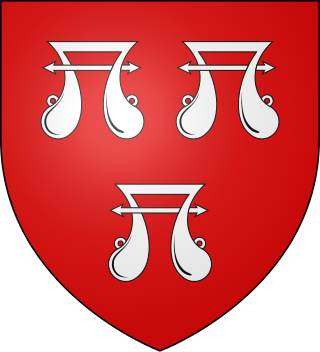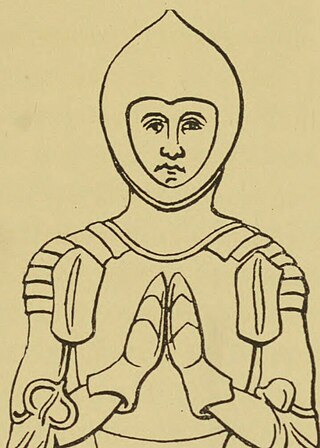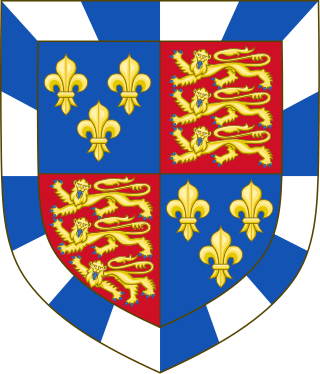Related Research Articles

Richard Neville, 16th Earl of Warwick, 6th Earl of Salisbury,, known as Warwick the Kingmaker, was an English nobleman, administrator, landowner of the House of Neville fortune and military commander. The eldest son of Richard Neville, 5th Earl of Salisbury, he became Earl of Warwick through marriage, and was the wealthiest and most powerful English peer of his age, with political connections that went beyond the country's borders. One of the leaders in the Wars of the Roses, originally on the Yorkist side but later switching to the Lancastrian side, he was instrumental in the deposition of two kings, which led to his epithet of "Kingmaker".

Earl of Warwick is one of the most prestigious titles in the peerages of the United Kingdom. The title has been created four times in English history, and the name refers to Warwick Castle and the town of Warwick.

John David Beckett Taylor, Baron Taylor of Warwick is a member of the House of Lords in the Parliament of the United Kingdom. His full title is "The Lord Taylor of Warwick". In 1996, at the age of 44, he became one of the youngest people in the upper house.

Baron Poltimore, of Poltimore in the County of Devon, is a title in the Peerage of the United Kingdom. It was created in 1831 for Sir George Bampfylde, 6th Baronet. His son, the second Baron, held office as Treasurer of the Household from 1872 to 1874 in the first Liberal administration of William Ewart Gladstone.

Thomas Ros or Roos, 8th Baron Ros of Helmsley was an English peer.

Thomas Chaucer was an English courtier and politician. The son of the poet Geoffrey Chaucer and his wife Philippa Roet, Thomas was linked socially and by family to senior members of the English nobility, though he was himself a commoner. Elected fifteen times to the Parliament of England, he was Speaker of the House of Commons for five parliaments in the early 15th century.

Lionel de Welles, 6th Baron Welles, KG was an English peer who served as Lord Lieutenant of Ireland and Joint Deputy of Calais. He was slain fighting on the Lancastrian side at the Battle of Towton, and was attainted on 21 December 1461. As a result of the attainder, his son, Richard Welles, 7th Baron Welles, did not succeed him in the barony of Welles until the attainder was reversed by Parliament in June 1467.
Events from the 1400s in England.
Events from the 1420s in England.
Events from the 1430s in England.
Events from the 1450s in England.
Events from the 1460s in England.

Lady Eleanor Beaufort, Countess of Ormond and Wiltshire was the daughter of Edmund Beaufort, 2nd Duke of Somerset (1406-1455), KG, and was a sister of the 3rd and 4th Dukes of Somerset.
John Warwick was an actor.
Henry de Ardern, or Henry Ardern, was a Member of Parliament for Warwickshire in 1377 and again in 1380, and for Worcestershire from November 1381.
Events from the year 1470 in France
John Weston, of Coventry, Worcester and Warwick, was an English politician.
Sir Thomas Neville was the second son of Richard Neville, 5th Earl of Salisbury, a major nobleman and magnate in the north of England during the fifteenth-century Wars of the Roses, and a younger brother to the more famous Richard Neville, Earl of Warwick, the 'Kingmaker'. Thomas worked closely with them both in administering the region for the Crown, and became a significant player in the turbulent regional politics of northern England in the early 1450s, especially in the Neville family's growing local rivalry with the House of Percy. His wedding in August 1453 is said to have marked the beginning of the armed feud between both houses, in which Thomas and his brother John led a series of raids, ambushes and skirmishes across Yorkshire against the Percy family. Historians describe the feud as setting the stage for the Wars of the Roses, the dynastic struggle between the houses of Lancaster and York for the English throne, and Thomas played a large role in the Neville family's alliance with his uncle, Richard, Duke of York.

Sir Humphrey Stafford"With the Silver Hand", of Hooke in Dorset and of Southwick in the parish of North Bradley in Wiltshire was a member of the English gentry in the south west of England, where he was a Member of Parliament multiple times and an important royal official.

John Greville was a Member of Parliament for Gloucestershire in seven parliaments.